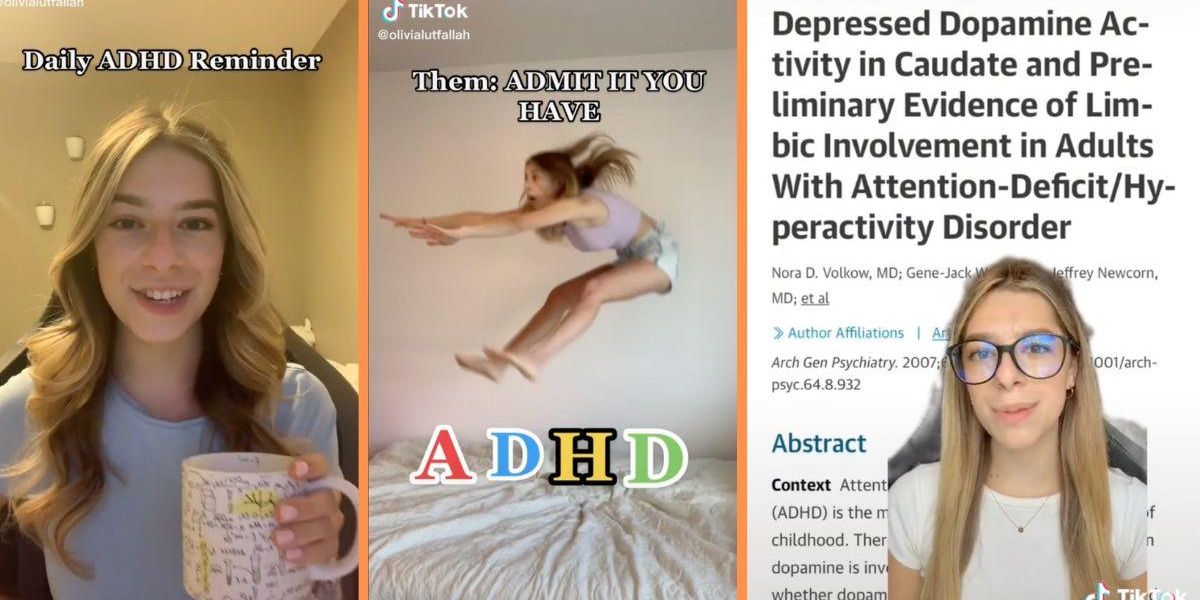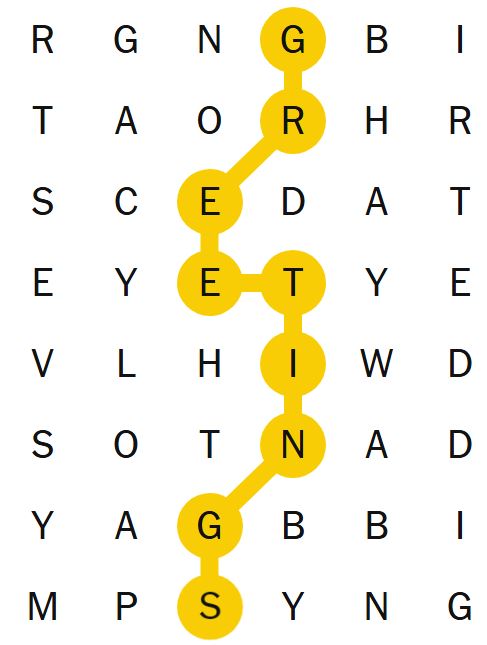Has TikTok Changed How We Understand ADHD?

Table of Contents
ADHD, or Attention-Deficit/Hyperactivity Disorder, is a neurodevelopmental disorder characterized by inattention, hyperactivity, and impulsivity. Symptoms can vary widely, affecting individuals differently throughout their lives. Common symptoms include difficulty focusing, hyperactivity, impulsiveness, organizational challenges, and emotional regulation problems. While traditionally diagnosed in childhood, many adults are now seeking an ADHD diagnosis later in life.
This article will argue that TikTok has significantly, albeit unevenly, altered public understanding of ADHD. While it's undeniably increased awareness and fostered a sense of community, it simultaneously presents challenges regarding misinformation and potentially detrimental mental health impacts.
The Rise of ADHD Content on TikTok
Increased Visibility and Awareness
TikTok's algorithm, notorious for its ability to amplify specific content, has undeniably boosted the visibility of ADHD-related material. This has reached a far broader audience than traditional media outlets ever could. Creators, many of whom share their personal experiences with ADHD symptoms and daily struggles, play a crucial role in this increased awareness. Popular trends, such as #ADHD, #ADHDlife, and #neurodiversity, have generated millions of views, sparking conversations and prompting many to research the condition further.
- Increased diagnosis rates: While definitive data is still emerging, anecdotal evidence suggests a potential rise in individuals seeking ADHD diagnosis after encountering relatable content on TikTok.
- Broader discussions about ADHD: The platform facilitates discussions about various aspects of ADHD, including its presentation in women and adults, often overlooked in traditional medical narratives.
- Destigmatization: Open and honest discussions on TikTok are helping to destigmatize ADHD, normalizing the experience and promoting empathy.
Challenges of Information Accuracy
While increased awareness is undeniably positive, the rapid spread of information on TikTok also presents challenges. Misinformation, inaccurate "ADHD hacks," and the encouragement of self-diagnosis are significant concerns. Relying solely on TikTok for information about a complex neurological condition like ADHD is dangerous. TikTok videos, while relatable and engaging, shouldn’t replace professional medical advice.
- Misinformation concerns: Unverified information, potentially harmful "cures," and misleading advice are frequently encountered.
- The importance of professional help: Accurate diagnosis and treatment plans should always come from qualified healthcare professionals like psychiatrists or psychologists. Self-diagnosis based on TikTok trends can be detrimental.
- Potential for harmful trends: Some trends might encourage risky behaviors or neglect crucial aspects of professional treatment.
The Impact on the ADHD Community
Building Community and Connection
One of TikTok's most significant contributions is the fostering of a vibrant online community for individuals with ADHD. Sharing experiences, struggles, and coping mechanisms reduces feelings of isolation, a common experience among those with the condition. Hashtags and challenges create spaces for connection and mutual support.
- Reduced feelings of isolation: Connecting with others who "get it" is incredibly validating and reduces the sense of loneliness often associated with ADHD.
- Increased support networks: TikTok facilitates the formation of online support groups and communities, offering peer-to-peer support and understanding.
- Shared experiences: The platform allows for the sharing of relatable experiences, fostering a sense of belonging and validation.
Potential for Negative Comparison and Pressure
The curated nature of social media content can lead to negative comparisons and unrealistic expectations. Individuals might compare their experiences to idealized versions presented on TikTok, leading to increased anxiety and self-criticism. It's crucial to remember that online content rarely reflects the full picture.
- Negative comparisons: Constantly seeing seemingly "successful" individuals with ADHD can lead to feelings of inadequacy and self-doubt.
- Unrealistic expectations: The highlight reel nature of TikTok can create unrealistic expectations regarding symptom management and daily life.
- Mental health implications: Excessive social media use, coupled with negative comparisons, can negatively impact mental well-being.
TikTok's Influence on ADHD Diagnosis and Treatment
Increased Awareness Leading to Seeking Help
TikTok's increased visibility of ADHD might be prompting more individuals to seek professional help. Seeing relatable content and understanding their own struggles more clearly can motivate people to investigate a potential diagnosis.
- Increased seeking of professional help: Many individuals report seeking an ADHD diagnosis after learning about the condition on TikTok.
- Potential impact on diagnosis rates: While causality isn't definitively established, a potential correlation between TikTok's influence and increased diagnosis rates exists.
- Improved access to resources: TikTok can also help connect individuals with relevant resources, support groups, and therapists.
The Role of TikTok in Supplementing Therapy
TikTok can serve as a supplementary tool for managing ADHD symptoms. Videos offering coping mechanisms, time management techniques, and organizational strategies can be helpful additions to professional treatment. However, it should never replace professional guidance.
- Coping mechanisms: TikTok offers a wealth of relatable coping mechanisms shared by the ADHD community.
- Time management tips: Various videos offer helpful tips and strategies for improving time management and organization.
- Organizational strategies: Users share practical organizational techniques that can be beneficial for managing daily tasks and responsibilities.
Conclusion: Has TikTok Changed How We Understand ADHD? A Final Verdict
TikTok has undeniably increased visibility and awareness of ADHD, fostering a strong sense of community and connection. However, the platform also presents challenges concerning misinformation, the potential for negative mental health impacts from social comparison, and the dangers of self-diagnosis. While TikTok can be a helpful supplementary resource for understanding your ADHD and managing your ADHD, it's crucial to remember that it should never replace professional guidance. Seeking professional help for an ADHD diagnosis and treatment remains paramount. Responsible social media consumption, involving critical evaluation of online information, is vital for navigating your ADHD journey effectively. The future of ADHD awareness and online communities remains bright, but careful navigation and critical thinking remain essential for harnessing the potential benefits while mitigating the risks. If you suspect you have ADHD, seek professional help. Understanding your ADHD journey begins with a qualified professional; TikTok can offer support, but not diagnosis or treatment.

Featured Posts
-
 Nyt Strands February 28 2025 Complete Solutions And Spangram
Apr 29, 2025
Nyt Strands February 28 2025 Complete Solutions And Spangram
Apr 29, 2025 -
 Celebrating Culture The Annual Canoe Awakening Event
Apr 29, 2025
Celebrating Culture The Annual Canoe Awakening Event
Apr 29, 2025 -
 Empty Offices Plague Chicago Understanding The Zombie Building Phenomenon
Apr 29, 2025
Empty Offices Plague Chicago Understanding The Zombie Building Phenomenon
Apr 29, 2025 -
 Midland Athlete Missing In Las Vegas Family And Police Appeal For Information
Apr 29, 2025
Midland Athlete Missing In Las Vegas Family And Police Appeal For Information
Apr 29, 2025 -
 From Toni To Grifo Tracing The Legacy Of Italian Players In The Bundesliga
Apr 29, 2025
From Toni To Grifo Tracing The Legacy Of Italian Players In The Bundesliga
Apr 29, 2025
